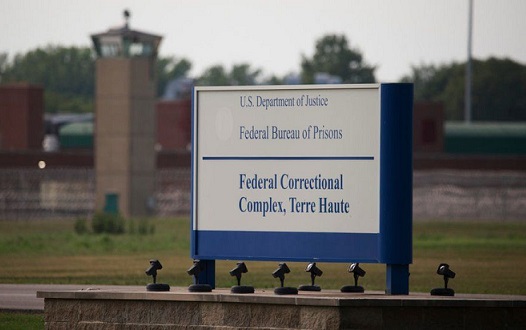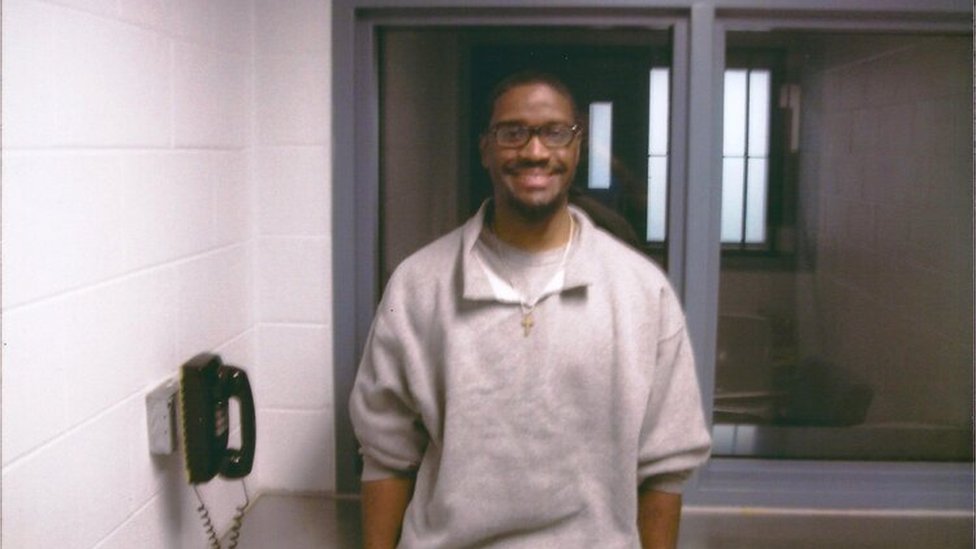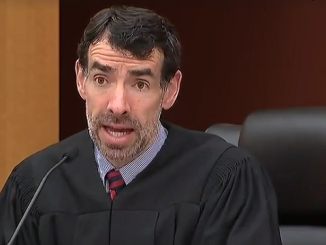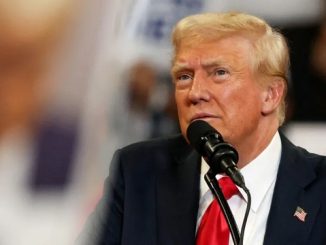
As President Donald Trump’s days in the White House wane, his administration is racing through a string of federal executions.
Five executions are scheduled before President-elect Joe Biden’s 20 January inauguration – breaking with an 130-year-old precedent of pausing executions amid a presidential transition.
And if all five take place, Mr Trump will be the country’s most prolific execution president in more than a century, overseeing the executions of 13 death row inmates since July of this year.
The five executions are to begin this week, starting with 40-year-old Brandon Bernard and 56-year-old Alfred Bourgeois. They are both scheduled to be put to death at a penitentiary in Terre Haute, Indiana.
Attorney General William Barr has said his justice department is simply upholding existing law. But critics have said the move is concerning, coming just weeks before Mr Biden – who has said he will seek to end the death penalty – takes office.
“This is really outside the norm, in a pretty extreme way,” said Ngozi Ndulue, director of research at the non-partisan Death Penalty Information Center.
Here’s what you need to know about President Trump’s last-minute rush of executions.
What is current policy in the US?
Since the federal death penalty was reinstated by the US Supreme Court in 1988, federal executions in the US have remained rare.
Before Mr Trump took office, only three federal executions had taken place in this period.
All were carried out under Republican President George W Bush, and included inmate Timothy McVeigh, convicted of the Oklahoma City federal building bombing. Since 2003, there have been no federal executions at all.
US states have continued to execute inmates in state prisons, putting a combined 22 death row inmates to death last year. But state executions are also on a downward trend.
A growing number have moved to abolish capital punishment all together, and the majority have either formally banned the practice or have not put any inmates to death in more than a decade.
Popular opinion, too, has shifted away from capital punishment. A November 2019 Gallup poll found that 60% of Americans supported life in prison over the death penalty for the first time since the survey began more than 30 years ago.
“Public support for the death penalty is at a decades-long low,” Ms Ndulue said.
Further problems have emerged with the methods of execution, sourcing drugs used for lethal injections, and the costs of decades-long court battles and appeals.
What did the Trump administration do?
In July 2019, Mr Barr announced the scheduled executions of five death row prisoners, despite prevailing practices and public opinion.
“Congress has expressly authorised the death penalty,” the country’s top legal official said in a statement at the time. “The justice department upholds the rule of law – and we owe it to the victims and their families to carry forward the sentence imposed by our justice system.”
The selected inmates had been convicted of murdering or raping children and the elderly, Mr Barr said.
The move drew fierce criticism from top Democrats and human rights groups.
“We feel [the death penalty] is an unconstitutionally arbitrary punishment that should have been abolished decades ago,” said Lisa Cylar Barrett, director of policy at the NCAAP Legal Defense Fund.
And the particular selection of inmates fuelled charges that the decision was politically motivated.
The first set of executions this summer – during a wave of anti-racism protests and demonstrations – were all of white men. Now, four of the five prisoners scheduled to be put to death are African American.
Ms Ndulue said she didn’t think it was “coincidental” that no black prisoners were scheduled for execution during a period of “enhanced awareness of the racial disparities around the federal death penalty”.
Research suggests the death penalty has been enforced differently according to race.
“One of the most robust findings of study after study, in jurisdictions across the country, is that the race of your victim is a serious factor in determining whether or not you will have the death penalty,” Ms Ndulue said.
What is happening now?
If the executions of Brandon Bernard and Alfred Bourgeois go ahead as scheduled the 10 inmates executed in 2020 will bring a single-year total unmatched in modern history.
Update: Brandon Bernard was executed in Indiana after last-minute clemency pleas were rejected by the US Supreme Court.
Bernard was pronounced dead at 21:27 local time on Thursday (02:27 GMT Friday) at a penitentiary in the city of Terre Haute.
Before that he directed his last words to the victims’ family, speaking calmly for more than three minutes.
“I’m sorry. That’s the only words that I can say that completely capture how I feel now and how I felt that day,”
“We’d have to go back to 1896 to find another year where there were 10 or more executions,” Ms Ndulue said.

(Image: Courtesy Bernard Defense Team)
The Trump administration has also chosen to carry out federal executions in the midst of a political transition, with a lame-duck president, for the first time in more than a century.
Incumbent presidents have typically deferred to their successors, allowing presidents-elect to set the course.
In an interview with the Associated Press, Mr Barr defended the post-election executions, and said he would likely schedule more before he leaves the justice department.
“I think the way to stop the death penalty is to repeal the death penalty,” he said. “But if you ask juries to impose it, then it should be carried out.”
But it is a controversial choice, especially as the incoming Biden administration has said it will work to end the death penalty.
The first scheduled execution, of Bernard, has drawn particular attention. Convicted of murder and kidnapping in 1999, Bernard was 18 years old at the time of his offense, and would be the youngest offender executed by the federal government in nearly 70 years.
Five of the nine surviving jurors in the case, as well as the US attorney who defended the death sentence on appeal, have publicly called for his execution to be stopped.
Kim Kardashian has also weighed in, making a direct appeal to Mr Trump on Twitter.
What is Biden’s policy on the death penalty?
Mr Trump has been a long-time, vocal advocate of the death penalty. The Biden team is opposed.
Vice-president-elect Kamala Harris, in particular, has been a consistent critic of the practice. She took a stand against capital punishment in her successful 2003 campaign for San Francisco District Attorney and declined to seek the death penalty in the murder of a 29-year-old police officer, killed in the line of duty – despite pressure from within her party.
The president-elect’s record is more uneven.
Mr Biden’s 1994 crime bill added some 60 federal crimes for which someone could be put to death. Some of those on death row today were convicted under provisions of his legislation. Now, he has promised to push for legislation eliminating federal executions entirely, and to encourage states to do the same.
The Biden team has noted that more than 160 individuals sentenced to death in the US since 1973 have later been exonerated. Mr Biden has yet to name his choice for US attorney general.
The inmates facing execution
- Brandon Bernard was convicted in the 1999 kidnapping and murder of two youth ministers, Todd and Stacie Bagley. He is scheduled for execution on 10 December, amid calls for clemency due to his young age at the time of the crime.
- Alfred Bourgeois is on death row for torturing and beating his two-year-old daughter to death. He is scheduled for execution on 11 December. An earlier execution date was stayed by a federal judge due to evidence from Bourgeois’ legal team showing he had an intellectual disability. This ruling was overturned in October.
- Lisa Montgomery strangled a pregnant woman in Missouri before cutting out and kidnapping the baby in 2004. She is scheduled for execution on 12 January. Her lawyers have said she experienced brain damage from beatings as a child and suffers from serious mental illness. She will be the first woman to face execution in the US since 1953.
- Cory Johnson was convicted for the murder of seven people, related to his involvement with the drug trade in Richmond, Virginia. Johnson’s legal team has argued that he suffers from an intellectual disability, related to physical and emotional abuse he experienced as a child. His execution is scheduled for 14 January.
- Dustin John Higgs was convicted in the 1996 kidnapping and murder of three young women in the Washington, DC area. Higgs did not kill any of his victims. His co-defendant Willis Haynes did, after being instructed to by Higgs. Haynes has said in court documents that Higgs did not threaten him, or force him to shoot. Higgs is scheduled for execution on 15 January.
Source: bbc.co.uk






Be the first to comment